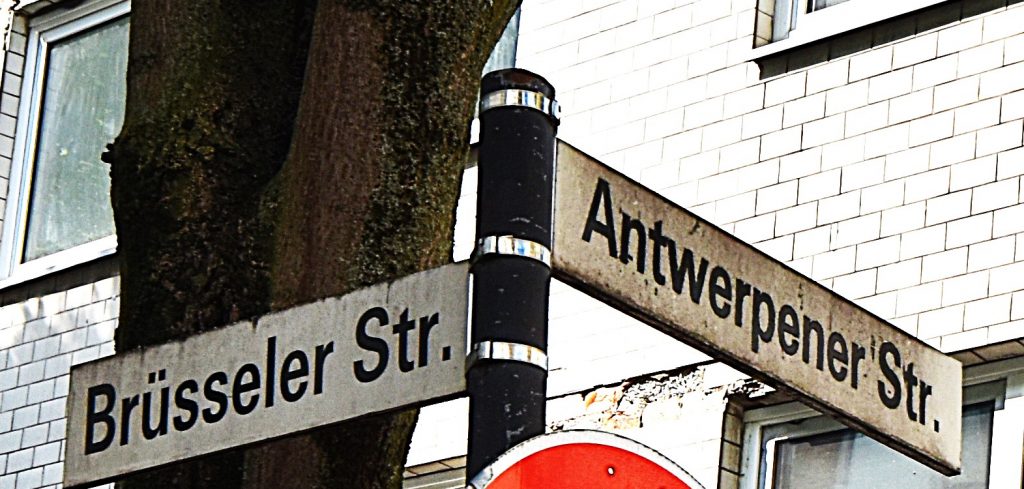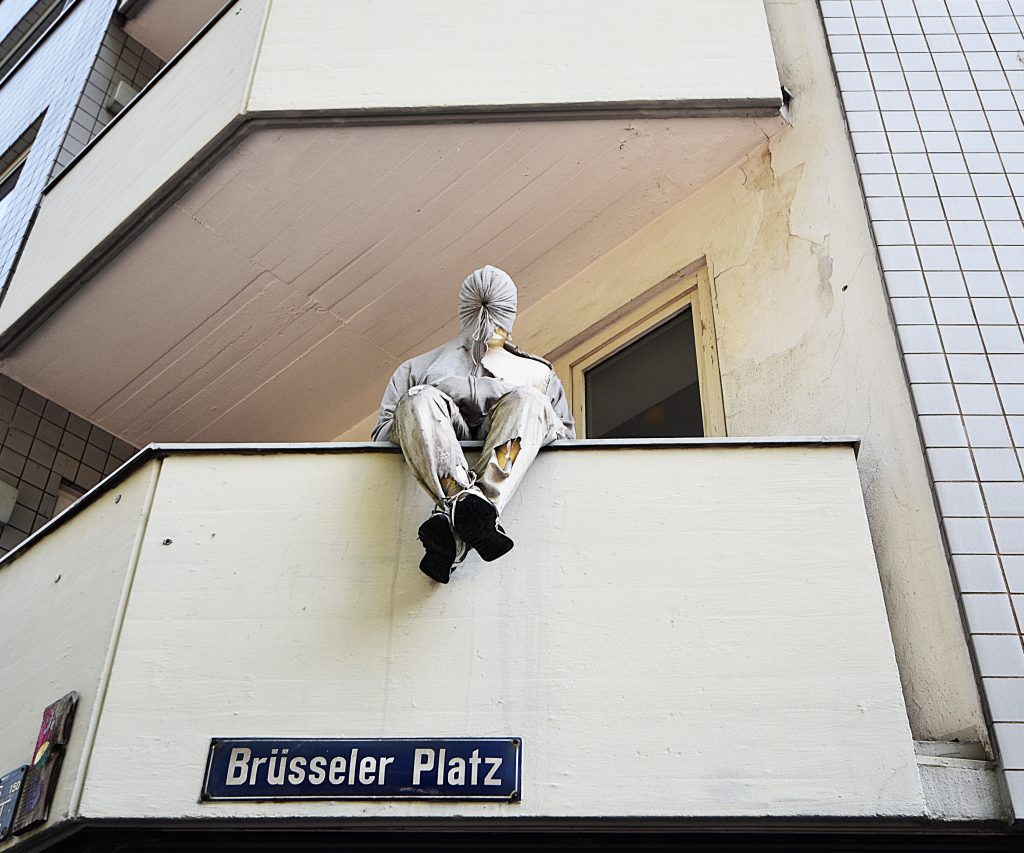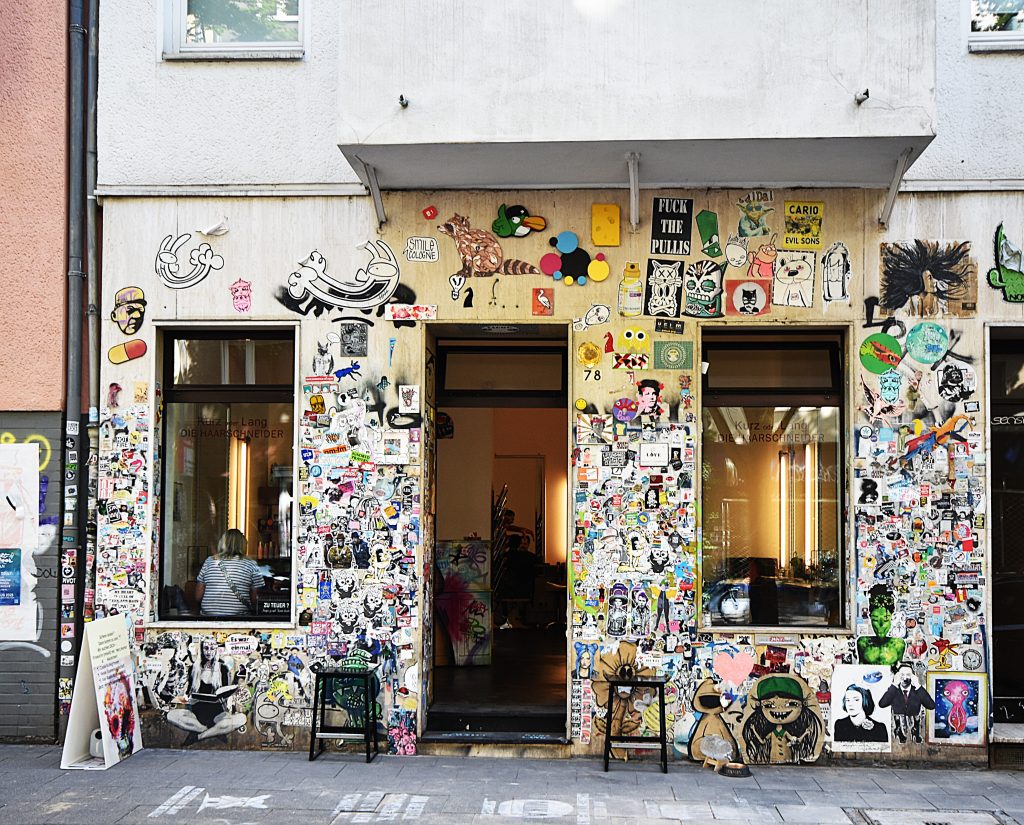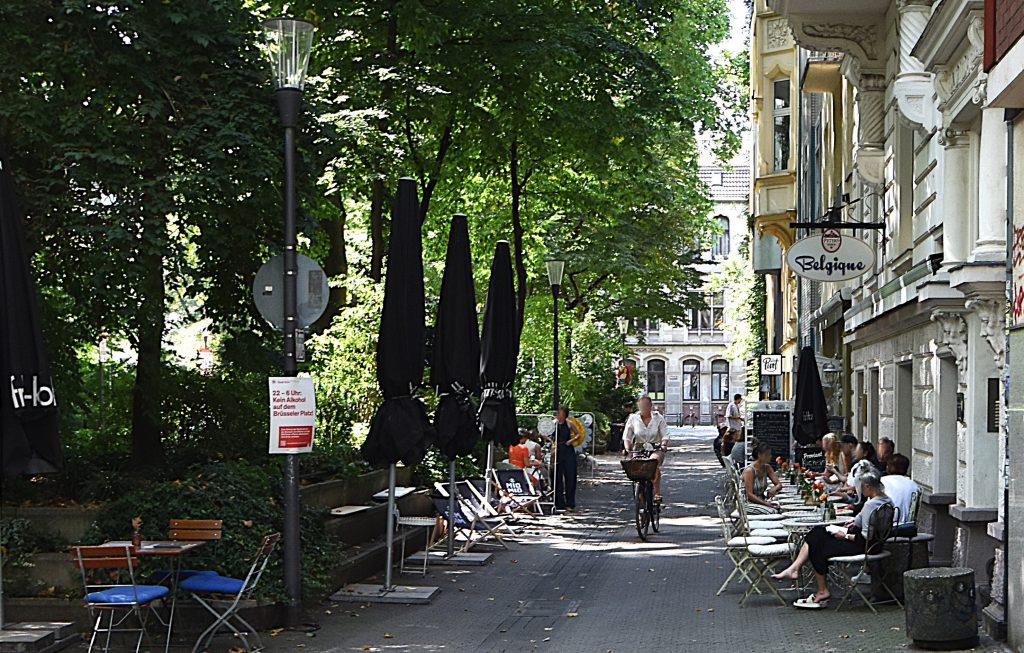
Brussels’s Square in Cologne is, in fact, not really a square-it’s more an old church surrounded by a park. It’s a peaceful place with little traffic and plenty of spots to sit down. Around the square lies the Belgian Quarter, a neighborhood of Cologne, full of small shops, boutiques, restaurants, and cafés. Rents here are among the highest in town. Life seems peaceful—this is where the kind people live.
That started to change in 2006, during the World Cup. Germany went wild. The national team played (fairly) well, and for the first time since World War II, people openly celebrated their team. No, it wasn’t evil nationalism making a comeback—it was more a feeling that it was finally okay to be German. That shift came with all kinds of public gatherings. Funny enough, as soon as someone sets up a TV outside, it’s called a “public viewing”—a phrase borrowed from English and used as if it were natural German. It means watching soccer together, even though in English, a “public viewing” is something you’d associate with a funeral.
Anyway—Brussels Square, the peaceful heart of the Belgian Quarter, became one of those meeting spots. That started a tradition: young people brought beer and met up with friends (and friends-to-be) at the square. There was talking, dancing, music, and the ever-present clink of bottles. This trend grew during the pandemic, when bars and restaurants were closed and people, eager to socialize, simply gathered outside. In other words, Brussels Square turned into a party place.
Naturally, a conflict followed. Locals wanted to sleep—some had early morning shifts. Parents didn’t appreciate the mess and the smell when they visited the square with their kids. Local bars and pubs profited from the crowd but soon saw their opening hours regulated by the city. The matter even went to court, which ruled earlier this year that all gastronomy must close by 10 p.m.
But that didn’t stop the party people. They just brought their own bottles and moved to the benches and the grass. So the key question here seems to be: Whose freedom limits whose freedom? What are the boundaries within which people can live their lives—and who decides?
Liked this post? Email me to say hi and I’ll sign you up for more articles like this: send mail



Leave a Reply